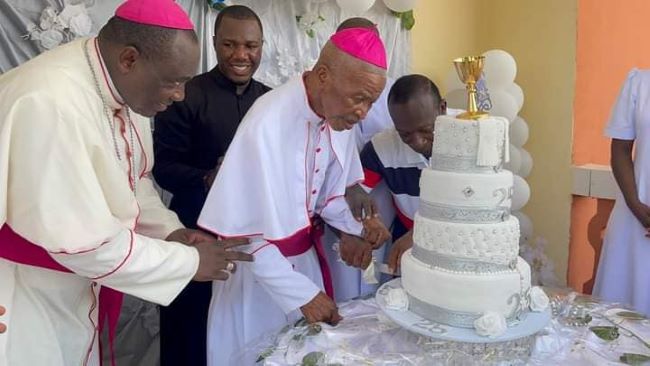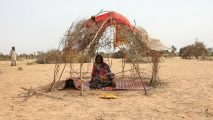Categories
Archives
- April 2024
- March 2024
- February 2024
- January 2024
- December 2023
- November 2023
- October 2023
- September 2023
- August 2023
- July 2023
- June 2023
- May 2023
- April 2023
- March 2023
- February 2023
- January 2023
- December 2022
- November 2022
- October 2022
- September 2022
- August 2022
- July 2022
- June 2022
- May 2022
- April 2022
- March 2022
- February 2022
- January 2022
- December 2021
- November 2021
- October 2021
- September 2021
- August 2021
- July 2021
- June 2021
- May 2021
- April 2021
- March 2021
- February 2021
- January 2021
- December 2020
- November 2020
- October 2020
- September 2020
- August 2020
- July 2020
- June 2020
- May 2020
- April 2020
- March 2020
- February 2020
- January 2020
- December 2019
- November 2019
- October 2019
- September 2019
- August 2019
- July 2019
- June 2019
- May 2019
- April 2019
- March 2019
- February 2019
- January 2019
- December 2018
- November 2018
- October 2018
- September 2018
- August 2018
- July 2018
- June 2018
- May 2018
- April 2018
- March 2018
- February 2018
- January 2018
- December 2017
- November 2017
- October 2017
- September 2017
- August 2017
- July 2017
- June 2017
- May 2017
- April 2017
- March 2017
- February 2017
- January 2017
- December 2016
- November 2016
- October 2016
- September 2016
- August 2016
- July 2016
- June 2016
Featured
 Bishop Francis T. Lysinge @ 25!
Bishop Francis T. Lysinge @ 25!  Understanding the Biya Francophone regime’s support for the Israeli genocide in Gaza
Understanding the Biya Francophone regime’s support for the Israeli genocide in Gaza  Poverty under Biya: Cameroonians embrace Chinese language for brighter futures
Poverty under Biya: Cameroonians embrace Chinese language for brighter futures  Cameroon is broken: Who can fix it?
Cameroon is broken: Who can fix it?  Ethiopia: U.S Senator Cardin Statement on the Killing of Bate Urgessa
Ethiopia: U.S Senator Cardin Statement on the Killing of Bate Urgessa
Most Commented Posts
 4 Anglophone detainees killed in Yaounde
4 Anglophone detainees killed in Yaounde
19 comments Chantal Biya says she will return to Cameroon if General Ivo Yenwo, Martin Belinga Eboutou and Ferdinand Ngoh Ngoh are sacked
Chantal Biya says she will return to Cameroon if General Ivo Yenwo, Martin Belinga Eboutou and Ferdinand Ngoh Ngoh are sacked
13 comments Anglophone Nationalism: Barrister Eyambe says “hidden plans are at work”
Anglophone Nationalism: Barrister Eyambe says “hidden plans are at work”
12 comments The Anglophone Problem – When Facts don’t Lie
The Anglophone Problem – When Facts don’t Lie
12 comments Largest wave of arrest by BIR in Bamenda
Largest wave of arrest by BIR in Bamenda
10 comments
Latest Tweets
Featured
-

Bishop Francis T. Lysinge @ 25!
-

10 Million Cameroonians lived on less than $1.80 per day
-

Football: Xavi to remain as Barcelona coach
-

Biya regime delays bond sale amid regional market strain
-

Historic agreement between Nigeria and Cameroon to tackle wildlife crime
-

Southern Cameroons refugees in Nigeria receive farm seedlings
-

Douala: Investment Forum wraps up with honors for investment champions
© Cameroon Concord News 2024
11, September 2018
Bilateral deals, corporate investment to the fore as China trims state funding to Africa 0
China has for the first time reduced the amount of money pledged to support the promises of the Forum on China-Africa Cooperation, as elements of the event suggest a maturing of Sino-African relations.
Chinese trade with Africa has dropped significantly in recent years, down to $170 billion in 2017 from a peak of $220 billion peak in 2014. As scrutiny of China’s influence in Africa – the debts owed, political involvement via training programmes, military presence – intensifies and Beijing’s own attention is diverted by the emerging trade war with the US, the $10 billion reduction in funding announced at the 2018 FOCAC forum in Beijing this month should perhaps not be seen as a surprise.
At $60 billion, the headline figure for the mix of aid, loans and credit lines promised seems at first glance to match the amount pledged at the previous summit in Johannesburg in 2015. Up until then, the figure had grown dramatically since the triennial summits of the FOCAC programme began in 2006.
This year’s $60 billion pledge comes as more of a mixed bag for African nations, as it actually includes a $5 billion reduction in the overall amount of pledges, loans and export credits at $35 billion, down from $40 billion three years ago. However, the level of concessional assistance to Africa is now $5 billion, the highest rate ever, according to analysis by Johns Hopkins University.
Most noticeably, the figures for the various amounts of government funding add up to $50 billion, and Chinese President Xi Jinping arrived at $60 billion again by including $10 billion in extra investment that Chinese companies would be encouraged to make on the continent. No further details of this were available and Chinese companies here in Ivory Coast are not yet prepared to comment on what the announcement means for them.
Around the prearranged announcements of the forum itself were side events and bilateral meetings as the Chinese hosts sought to integrate their Belt and Road trade initiative more concretely with individual nations. Details are yet to emerge, but some African leaders entered the meetings with clear requests. For example, Kenya’s President Uhuru Kenyatta sought help for an extension for the country’s troubled railway project that has previously been financed by China.
At the continental level, President Xi outlined eight areas of initiative and cooperation including industrialisation and agriculture hailed by the FAO; healthcare, hailed by the WHO; aligning with the African Union’s Agenda 2063 development plan; security and green development, an area in which China is the global leader.
China’s ‘five-no’ pledge
While some African nationals took to social media to criticise their leaders for what they believed was the blind acceptance of Beijing’s will, the mood at the events in the Chinese capital was of genuine cooperation. According to sources at the event, the announcements most welcomed by African delegates were the “five-no” promises, the clarification of five things that China will not do in Africa.
In the Chinese president’s own words there will be “no interference in African countries’ pursuit of development paths that fit their national conditions; no interference in African countries’ internal affairs; no imposition of our will on African countries; no attachment of political strings to assistance to Africa; and no seeking of selfish political gains in investment and financing cooperation with Africa”.
These declarations are a direct response to the growing criticism, predominantly by the West, of what is being called Chinese neo-colonialism across the continent – the notion of saddling countries with debt for useless projects as a way to secure resources. For example, over 90% of Djibouti’s external debt is held by China.
South African President Cyril Ramaphosa, who co-chaired the event with China’s Xi, said at the forum, “In the values that it promotes, in the manner that it operates, and the impact it has on African countries, FOCAC refutes the view that a new colonialism is taking hold in Africa, as our detractors would have us believe”.
Ramaphosa went on to state that: “We are working [together] to build an Africa that is defined by good governance, democracy, respect for human rights, justice and the rule of law,” listing all the areas in which China is most criticised by the West.
The forum’s announcements were immediately accompanied by supportive editorials from China’s state media. The People’s Daily, the publication seen as the most direct link to the Communist Party, pushed out fact sheets on social media defending China’s involvement in Africa.
Back in China, the announcements of funding led to criticism online by Chinese citizens complaining about the amount of money being sent overseas when parts of their own country are extremely poor. Such comments were promptly removed by censors.
It will take some time for the details of the 2018 event to emerge, but the China International Import Expo later this month in Shanghai is now the next China-Africa date on the calendar after Xi announced reduced or free participation for African nations and pledged to create a specific China-Africa trade expo.
The FOCAC events started at the request of African leaders 18 years ago to make bilateral relations more transparent. The triennial summits alternate between China and an African nation playing host. The 2021 FOCAC gathering will take place in Senegal.
Source: France 24